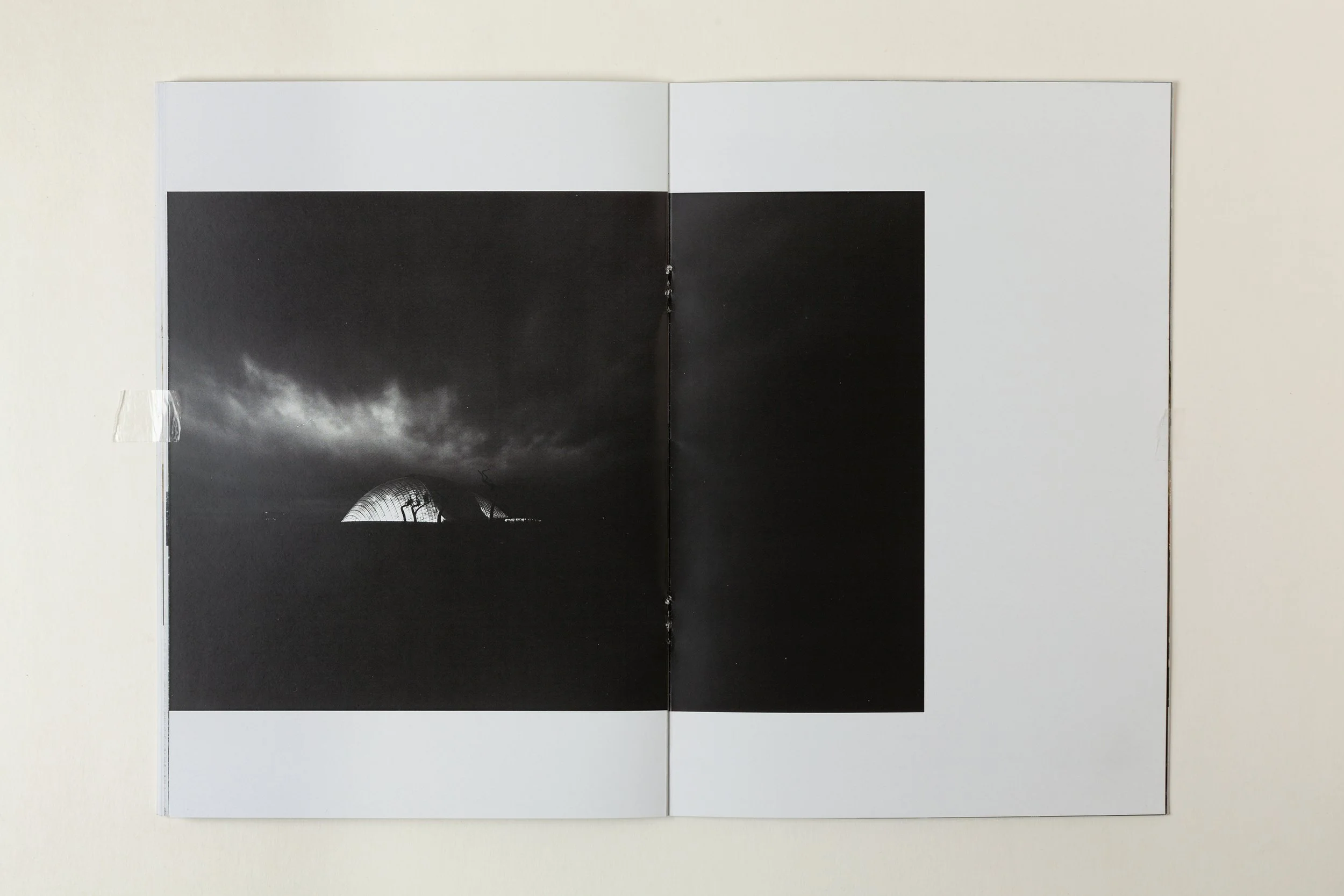Kuteyesee
Kuteyesee is an ongoing project that combines street photography with phrases overheard on the streets of Kutaisi, Georgia. This zine with a playful rhyme with the city’s name, reflects the essence and soul of Kutaisi, offering viewers a glimpse into its layered identity. Through the interplay of street photography and thematically connected phrases overheard in the city's streets, this work explores deeper questions: "What is a city? What is its character? What does it suffer from? What brings it joy? What creates the city's portrait?" Through the photos of Kuteyesee, I hope to provide an authentic representation of the zine's format, preserving the interplay of imagery and text as it was intended to be experienced.
Kublai Khan does not necessarily believe everything Marco Polo says when he describes the cities visited on his expeditions, but the emperor of the Tartars does continue listening to the young Venetian with greater attention and curiosity than he shows any other messenger or explorer of his. Invisible Cities by Italo Calvino
"I’d like to print a zine." "A ZIL?" This was part of a humorous exchange with a printing company representative who, unfamiliar with the concept of a zine, mistook it for the Soviet truck brand, ZIL. To clarify, ქუთeyesee is definitely not about trucks, though the misunderstanding adds an unexpected layer of charm to the project’s journey.
The word "დუმილი" (dumili), meaning "silence," looms large on the wall, inviting interpretations both personal and universal. In Georgia’s current political climate, this silence takes on a profound significance. Many choose to remain silent amid protests against the ruling party. For some, it stems from disillusionment— unwilling to support the opposition yet dissatisfied with the government. For others, it is fear— of losing their jobs, livelihoods, or security in a society where dissent can carry heavy consequences. The woman in the photo, masked and walking past the installation, symbolizes this silence. Her quiet presence is both a reminder and a challenge: How do we reconcile the need for self-preservation with the responsibility to stand against injustice? What happens when silence becomes complicity?
"What on earth are you photographing?" "I’m photographing you, ma’am." "Oh, I’m sorry, dear, I thought you were a foreigner. They stand there taking pictures of us like it’s something interesting to see us standing outside all day for pennies." This candid exchange with a bookinist on Kutaisi’s streets reflects a broader reality of the city. Whether on the streets, in markets, or elsewhere, the challenging economic conditions shape daily life in Kutaisi, where resilience and resourcefulness often mask deeper struggles.
A priest, A couple making out, Even a dog chased me in Bagrati’s yard. And then, a horse—for the first time. As it followed me, I found myself trying to determine its gender. I don’t know why. This whimsical and introspective text pairs with the image of a horse walking in front of the snowy, fog-shrouded Bagrati Cathedral.
A snowy view of the Red Bridge, captured from Rustaveli Bridge. The scene is quiet and desolate, with no human presence—just the gentle fall of snowflakes and the steady sound of the Rioni River breaking the silence.
The former Georgian Parliament building in Kutaisi, now deserted and abandoned—a stark symbol of the city’s neglect. Once a hub of national decision-making, it now mirrors the broader sense of abandonment felt in Kutaisi itself.
"One piece—thirty tetri. Take three for one lari." This phrase captures the blend of humor and quiet despair in the bustling negotiations of Kutaisi’s agricultural market. The three accompanying photos, dominated by shades of red, echo the intensity and rhythm of these exchanges, subtly reflecting the vibrant yet challenging reality of daily life.
Morning breaks over Mukhrani forest as the sun weaves through the skeletal trees. Taken from a moving car, the image blurs the lines between haste and stillness, echoing the restless spirit of a city on the edge—always in motion, yet deeply rooted in its quiet moments.
On the left: "Pear lemonade, please." "From Lechkhumi, picked right from the treetops—not off the ground, mind you." This playful exchange captures the wit and humor of Kutaisi's markets, where even the smallest sale comes with a story, a charm, and a touch of pride. It reflects the city’s character —lighthearted resilience amid everyday struggles. On the right: "Speak quickly, bro, I’ve got a private lesson to get to." This moment captures the surreal intersection of past and present in Kutaisi. A group of teenagers mimics an old tradition of "street justice"—a practice once ruled by so-called "thieves-in-law," individuals who acted as arbiters in disputes when the official legal system failed. Yet, this modern imitation of old codes becomes absurdly comical: the "arbiter" rushes the verdict, prioritizing his private lesson over the matter at hand. It’s a snapshot of a city where echoes of the past resurface, but their gravity sometimes dissolves into irony—a reflection of changing times and fading traditions.
"The session will take place only if at least 5 tickets are sold." The official policy of Cinema Sakartvelo, the only cinema in Kutaisi. On quieter days, moviegoers sometimes pool together to buy enough tickets to meet the quota —an act of quiet determination to keep the lights on and the film rolling.
"Gone?" "Yes, through Mexico." A simple exchange carrying the weight of a growing reality. The physically cut photograph mirrors the absence left behind by those who choose distant horizons— often crossing borders far from home, driven by hope but shadowed by uncertainty. In Kutaisi, departures like these are no longer surprising—they’ve become part of everyday conversations.














